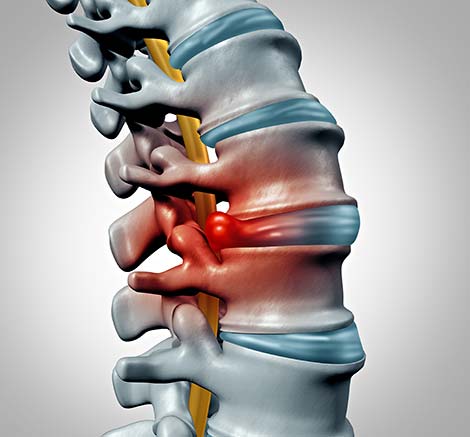 Disc Herniations / Sciatic
Disc Herniations / Sciatic
A herniated disc is also known as a slipped or ruptured disc; it is one of the most common causes of back and leg pain. They usually occur in the lower part of the spine.
The spine, or backbone, is made up of a series of individual bones called vertebrae that are stacked to form the spinal column. Between the vertebrae are flat, round cushioning pads called intervertebral discs, which act as shock absorbers. Each disc has a soft, gel-like center surrounded by a tough, fibrous outer layer.
A herniated disc occurs when pressure from the vertebrae above and below force some or all of the gel-like center through a weakened or torn part of the outer layer. This can then press on the nerves near the disc, resulting in pain. A disc herniation can be caused by improper lifting, repetitive movements, being overweight, smoking, prolonged and poor postures, sedentary behaviours, as well as sudden trauma.
Symptoms of a herniated disc in the low back include:
- Pain that radiates to the buttocks, legs, and feet (sciatica)
- Tingling or numbness in the legs or feet
- Muscle weakness
It is also possible to have significant pain and other symptoms from a disc just being irritated rather than fully herniated.
At Thrive, our practitioners pride themselves in the specific examination and diagnosis of different disc pathologies (injuries). There are many imaging tests such as CT and MRI that can isolate a specific disc herniation in your spine; however, we often find that a thorough history and examination can provide us with the same information which guides us in developing an accurate treatment protocol. It is always recommended that you consult a practitioner for assessment even if you have a CT or MRI scheduled so that you can begin the healing process as soon as possible.
We follow the current research guidelines for the treatment of disc herniation, which recommend manual therapy, thorough education, and an active rehabilitation program. Fortunately, if treated properly, most disc injuries will never have to resort to an invasive surgery.
